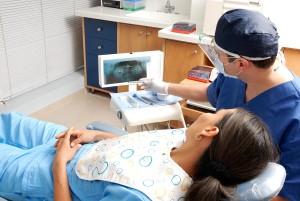 With the end of the year weeks away and open enrollment taking place for some insurance policies, you might be thinking about your dental insurance. If you have a plan with a maximum and/or a deductible, you should look into your treatment plan to see if you can maximize this year’s benefits. Here are a few tips to keep in mind.
With the end of the year weeks away and open enrollment taking place for some insurance policies, you might be thinking about your dental insurance. If you have a plan with a maximum and/or a deductible, you should look into your treatment plan to see if you can maximize this year’s benefits. Here are a few tips to keep in mind.
Check How Much Is Left of Your Calendar Year Maximum
If you are close to your maximum allowance for 2017, this means that you are running low on benefits available for restorative and major work. (Some plans allow you to still have your cleaning if you are due before the end of the year because preventative work isn’t figured into the maximum allowance, but check with your individual plan to be sure.) If you do have a dental emergency or you have a filling that can’t wait, you will still get your network discount, if applicable. If you need to have a crown replaced or some other work that isn’t urgent, ask your dentist if it’s safe to wait until after the first of the year, when your maximum resets.
Along the same line, if you have work that needs to be done and a lot left in your maximum allowance, then find out if we can accommodate you into our schedule before the end of the year. You might as well take advantage of that allowance; if you don’t use it, it will not roll over onto next year’s dental insurance plan.
Find Out Whether Your Plan Has a Deductible
Be aware of whether next year’s plan has a deductible and what it applies to. If you’ve already met your deductible for this year, keep in mind that you won’t be charged it again until after the first of the year. So if you need a filling done and you have enough in your maximum allowance left (or if you have no maximum allowance), getting it done this year will allow you to not pay a new deductible for it. If you wait until after the first of the year, you’ll need to pay the 2018 deductible.
If you haven’t paid your deductible for 2017 and you need work done now, you will need to pay your 2017 deductible. If you need more work done in January, you’ll also need to pay your 2018 deductible.
Of course, you should have your work completed as promptly as feasible; small dental problems left unchecked can spiral into much bigger dental problems. If you have non-urgent work, however, it might be okay to schedule it for shortly after the first of the year if it makes sense for dental insurance purposes. On the other hand, if you have a toothache, you need to get it taken care of now even if you are out of dental insurance benefits for the year. Talk to your dentist and your insurance coordinator to learn more about your benefits and how to afford your dental care.












